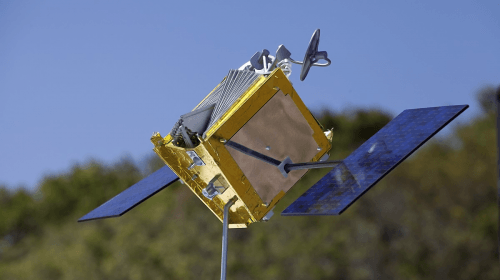With a population of over 209 million people, Pakistan is the fifth most populous country on the planet. Located in South Asia, it has maritime borders with the Arabian Sea and the Gulf of Oman and is bordered by India, Afghanistan, Iran and China. Pakistan has enormous potential to become one of the world’s largest economies in future years. In the past, it has relied heavily upon the agricultural sector, but in recent years, there has been an economic shift towards industry and service-based sectors.
Connecting 200 Million People
The ICT sector in the country has seen huge growth and, in 2016, there were 35 million Internet users across the country. However, there is still much work to be one in terms of connecting such an enormous population. Telecom infrastructure has seen much improvement due to foreign investment but there is still a very long way to go in terms of connecting up such a vast amount of people. Fibre has been introduced, but mobile telecom has seen the greatest growth year on year. Around half of Pakistanis own a mobile phone.
In terms of broadband, there is a need for improvement of the network. The percentage of mobile broadband users stands at 18.8%. Mobile devices offer the principal source of broadband access. The market has been through de-regulation but there is a huge rural population in Pakistan and although 4G is being rolled out, with 70% of people living in rural areas, it places a big strain on Mobile Network Operators (MNOs) to reach these isolated areas. It is extremely costly to construct mobile towers in outlying areas, and, in many cases, it is simply not possible for MNOs to justify this financially. The population is also dispersed and the Average Revenue per User (ARPU) is low. This is resulting in swathes of people left without access to broadband networks. In modern Pakistan, a country that is seeing growth in the use of e-commerce and digital networking, it is important that broadband networks are improved and augmented so that the societal benefits can be realised.
Satellite Solutions for Pakistan’s ICT Challenges
The challenge of connecting the large areas of Pakistan currently with no access to mobile or fixed line broadband can be addressed through the use of VSAT networks. BusinessCom Networks provides the ideal solution for the augmentation of mobile networks and also to provide a simple and cost-effective solution for community Internet access in remote areas.
BusinessCom’s VSAT solution provides for Internet service providers that wish tap into areas without connectivity through a tailored approach that matches their exact requirements. We have great experience in supporting ISPs all over the world and we can enable you to extend service provision to a market that is hungry for access.
For MNOs that are ready to extend their reach into rural areas, our rural 2G/3G/4G solution facilitates the delivery of low-cost voice, SMS and data across Pakistan, reaching even the most isolated areas. The mobile network solution serves as a traditional network that is independent form local infrastructure and is cost effective, eliminating the need for the construction of costly cellular towers.
BusinessCom can help to bridge the Digital Divide that still exists in Pakistan, making it easier for people to take part in the upcoming digital economy which is tipped to do so well.
Key features
Key differentiators of BusinessCom VSAT services in Pakistan are:
- Broadband Internet access
- Toll quality VoIP and Videoconferencing with CIR
- Reliable SLA through FDMA and D-TDMA
- Star, Mesh and hybrid Star/Mesh topology networks
- Full support of accelerated VPN, CITRIX, ERM and other business applications
- Highly secure operation with optional AES embedded encryption
- Global C-Band coverage and sub-Sahara Ku-Band
- Landing at top tier redundant IP facilities in Western Europe and United States
- Sentinel-based QoS, bandwidth management and optimization platform





